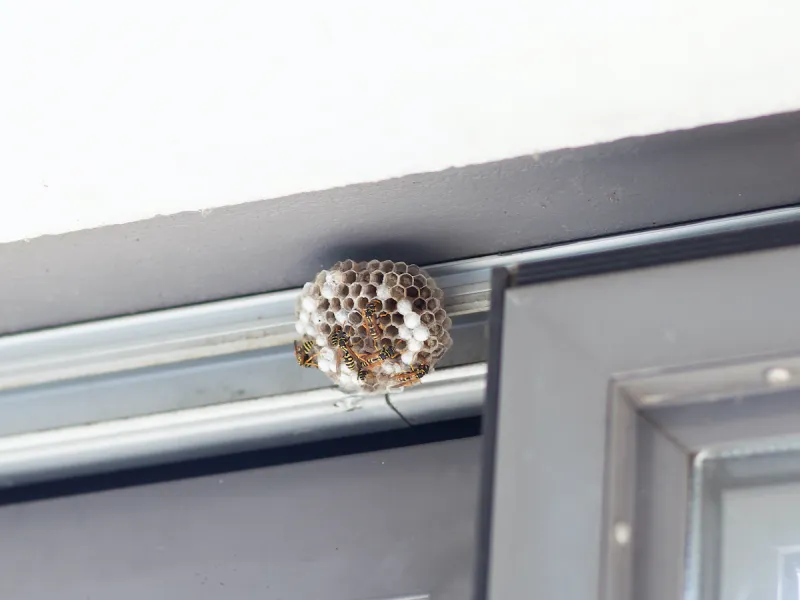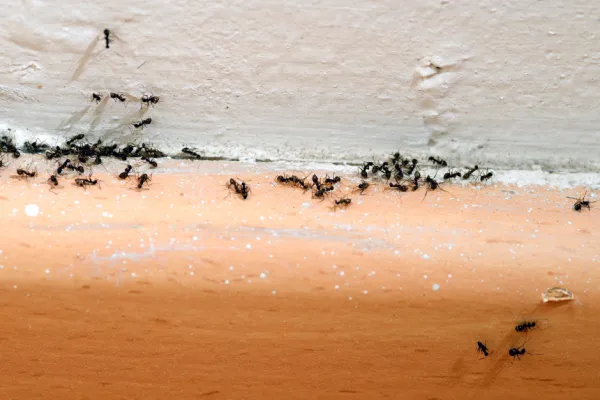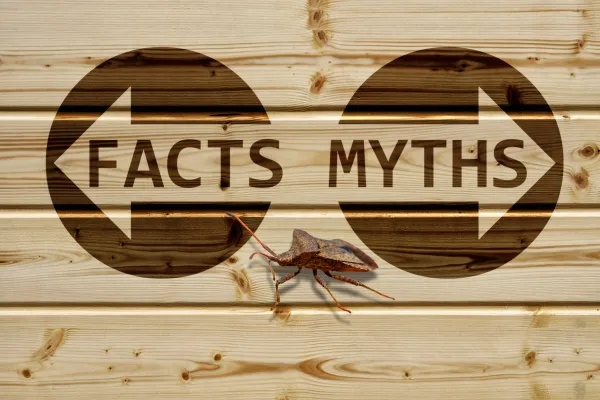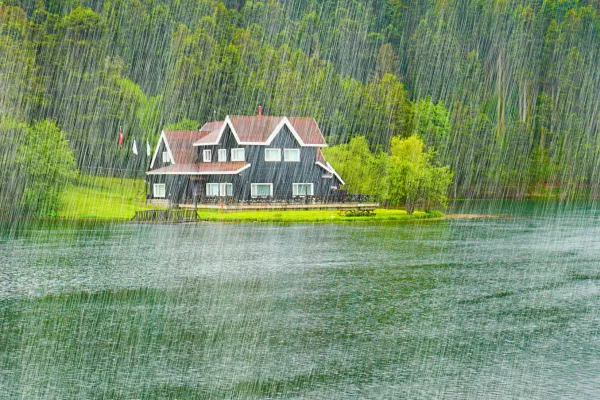Tips & Tricks to Keep Wasps Away from Your Home

Spending more time outside in the warm summer weather means more exposure to bees, wasps, hornets, and a number of other summer pests. Unlike traditional honey bees, wasps prey on smaller insects and can actually act as organic pest control for your garden. Although having these natural exterminators in your yard can be helpful, wasps tend to nest in residential areas that could leave you or your loved ones susceptible to painful stings. To prevent any injuries, our experts at Palmetto Exterminators have put together a few tips to keep wasps from nesting in or near your home:
Don’t Crack Under Pressure
Stop wasp invasions at the source by blocking small openings that can act as entryways to your home. Be sure to routinely seal tiny cracks in siding or along power-line routes, as well as patch any holes in window and porch screens. The ideal time to inspect your home and perform any necessary repairs is during the late Fall and early Spring seasons. That way, you can avoid getting potentially ambushed by any active (and angry) wasp nests.
The Kitchen is Closed
You and your family members aren’t alone in enjoying the delicious fruits produced in the summer. Keep in mind that wasps love it too, as they often feed on leftover fermenting fruit during this time of the year. Make sure that all of your leftover food is properly disposed of to keep these painful pests away! Additionally, you should cover your trashcans to protect against new, difficult to spot nests from being built nearby.

Go Back to the Basics
Troublesome wasp nests can be infiltrated using a simple mixture of dish soap and water in a spray bottle. Combine your favorite dish soap with water and spray the nest for an eco-friendly, instant pest control solution. Make sure to follow these safety guidelines when you are spraying the nest to avoid getting unnecessary and painful welts:
- Treat at dusk or dawn when the wasps are less likely to be active.
- Wear gloves and long sleeves and pants to avoid being stung.
- Make sure to spray the mixture on the entire nest.
- When spraying, make sure you stand away from the nest and not directly underneath.
- Spray when the air is calm, so that wind doesn’t blow away your mixture in the wrong direction.
- Don’t attempt to treat nests alone! Have a buddy with you in case your DIY pest control project goes wrong.
- Never try to kill a wasp nest if you think you might be allergic – seek professional help.
Peppermint essential oil is another great defense against wasps. Place cotton balls dipped in peppermint oil around the house in places you suspect a nest could pop up. Wasps usually are not picky nesters; they will build them just about anywhere, as long as they have a durable base to hang from. Some common spots include roof or wall eaves, porch ceilings, and overhangs.
If you happen to get stung by a wasp, wash the affected area with soap and water to remove as much of the venom as possible. Then, apply a cold pack or bag of ice to the sting to reduce swelling and pain. Make sure you keep the wound clean and dry to prevent it from getting infected. In addition to repelling wasps, peppermint oil can also be used to treat the sting. Learn other at-home remedies for stings.
Use a Simple Trap
Hanging wasp traps can be a great solution for unwanted wasp nests around your home. The market offers a great variety of traps including discreet glass options that double as aesthetic house decor. The most important thing to consider when planning placement for your wasp trap is proximity to the nest itself. Experts suggest placing the trap close to the wasp nest’s entrance to target wasps creating issues in your home rather than the wasps out in your yard.
If you want hassle-free help from the pest management specialists at Palmetto Exterminators, get in touch with us today! For over 58 years, Palmetto Exterminators has provided the Southeast region with superior pest control services. Get rid of your pests with a free inspection from one of our pest control experts located throughout the Carolinas.


